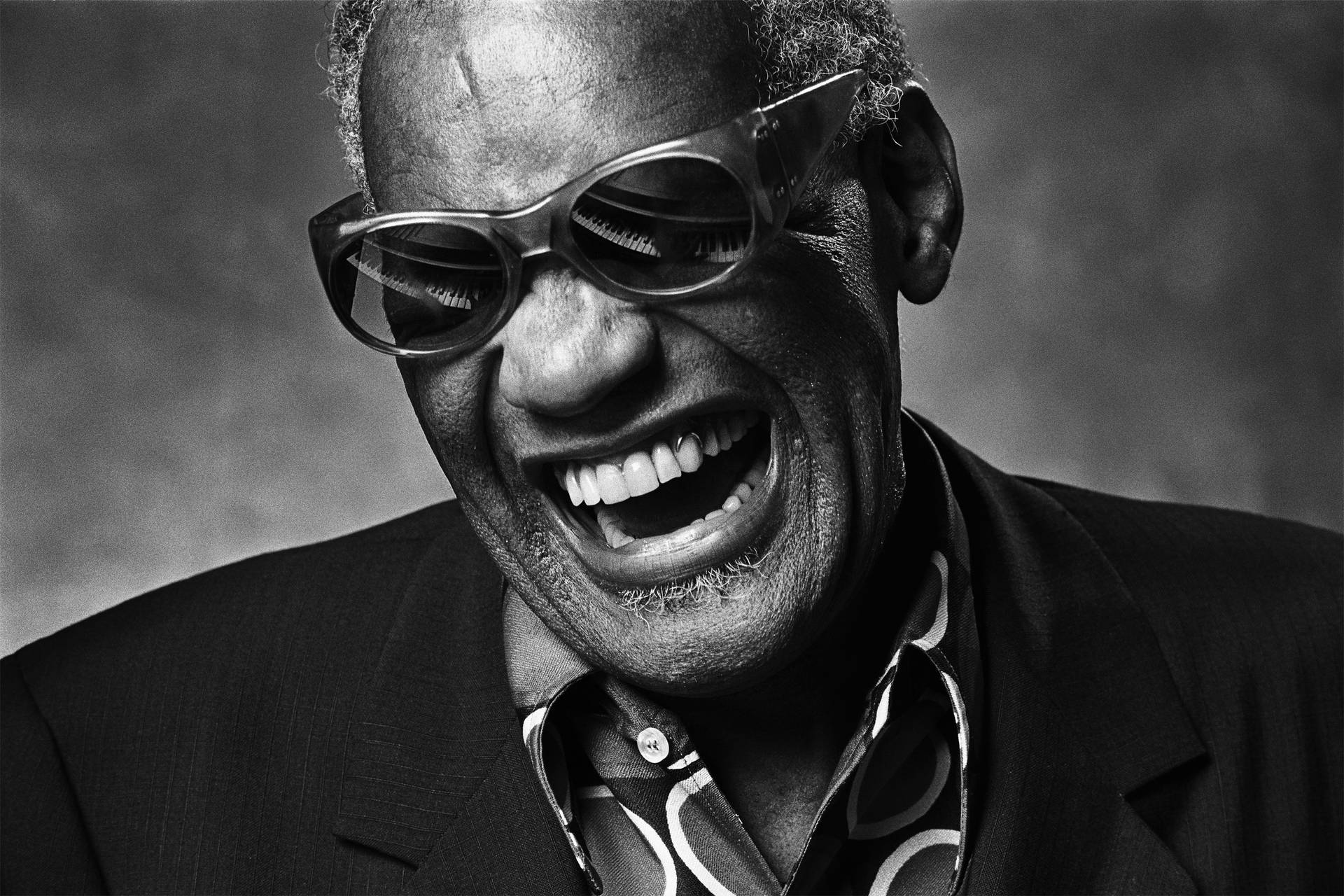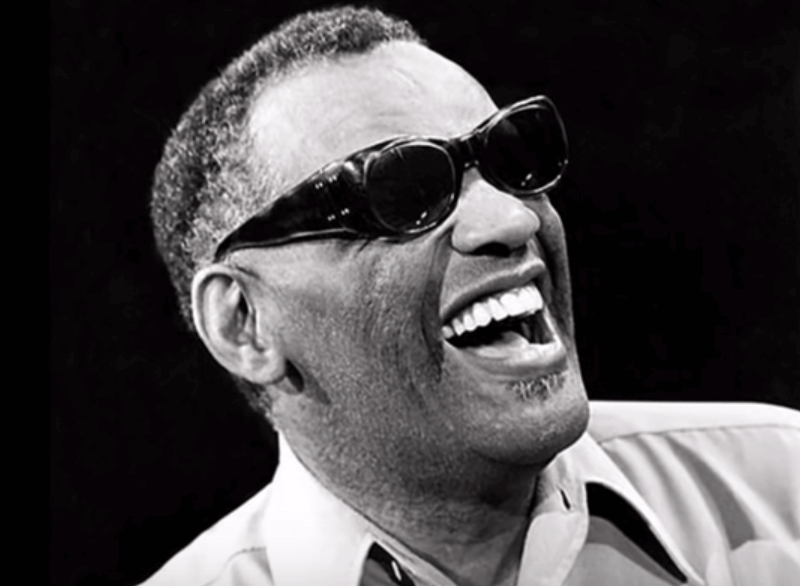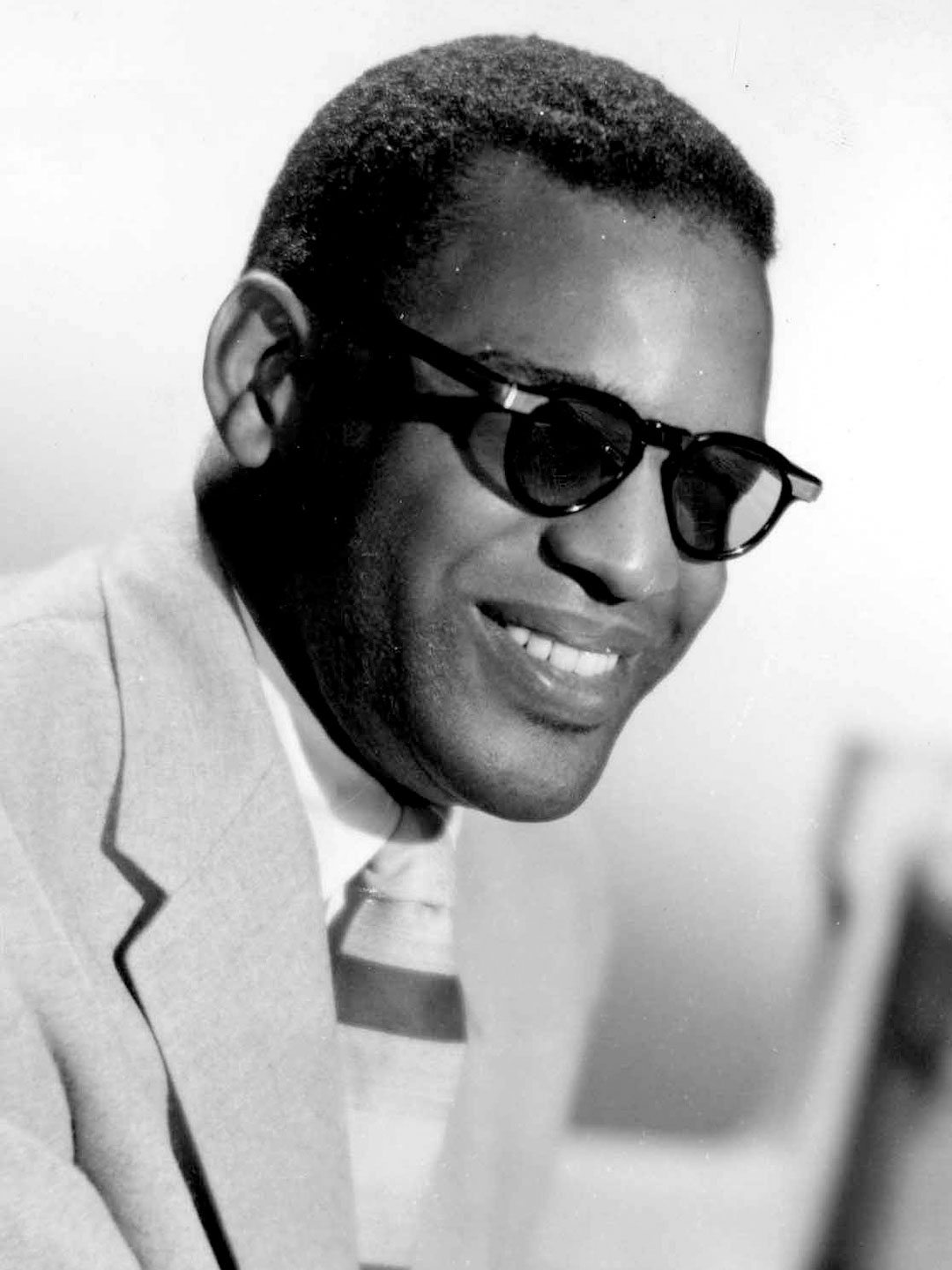Ray Charles: The Genius Of Soul Music - Discover Now!
Was there ever a musician who so profoundly shaped the landscape of American music that his influence still reverberates today? Ray Charles, the man often hailed as the "Father of Soul," not only pioneered a genre but also transcended it, leaving an indelible mark on the world with his innovative fusion of musical styles and his unparalleled vocal talent.
Born Ray Charles Robinson on September 23, 1930, in Albany, Georgia, Charles' journey to musical immortality was paved with both extraordinary talent and significant personal challenges. In a career spanning over fifty years, he masterfully blended blues, gospel, jazz, rhythm and blues, and even country music, creating a sound that was uniquely his own. His ability to connect with audiences across racial and cultural divides made him a true icon, whose music continues to inspire and move generations.
| Category | Details |
|---|---|
| Full Name | Ray Charles Robinson |
| Born | September 23, 1930, in Albany, Georgia, U.S. |
| Died | June 10, 2004, in Beverly Hills, California |
| Genres | Soul, Rhythm and Blues, Jazz, Gospel, Blues, Country |
| Instruments | Piano, Vocals |
| Notable Songs | "Georgia on My Mind," "What'd I Say," "Hit the Road Jack," "Unchain My Heart," "I Got a Woman" |
| First Record | "Confession Blues" (1949) |
| Notable Albums | "The Genius of Ray Charles", "Modern Sounds in Country and Western Music", "The Ray Charles Story" |
| Awards and Recognition | Grammy Lifetime Achievement Award, Kennedy Center Honors, numerous Grammy Awards |
| Official Website | Ray Charles Official Website |
Charles's early years were marked by tragedy. He lost his sight at the age of seven, a life-altering event that, rather than diminishing his potential, seemed to ignite his passion for music. He attended the Florida School for the Deaf and the Blind, where he learned to read music in Braille and honed his piano skills. By the time he was a teenager, Charles was already a seasoned musician, playing in various bands and absorbing the influences of artists like Nat "King" Cole and Charles Brown, whose piano blues style deeply influenced his own music.
In 1948, a young Ray Charles left his home in Florida and headed for Seattle, where he would form his first group, the McSon Trio. He cut his first record, "Confession Blues," in 1949, a song that hinted at the unique blend of blues and gospel that would become his signature sound. To avoid being confused with the popular boxer Sugar Ray Robinson, he began using the name "Ray Charles," a moniker that would become synonymous with musical genius.
The 1950s proved to be a pivotal decade for Charles. He pioneered the genre of soul music, blending the raw emotion of gospel with the soulful rhythms of blues and the sophisticated harmonies of jazz. His music resonated with a generation eager for authentic expression, transcending racial barriers and captivating audiences across the United States and beyond. Hits like "I Got a Woman," with its infectious energy and gospel-infused vocals, and "What'd I Say," a call-and-response masterpiece, became anthems of a new era.
Charles's influence extended far beyond the realm of music. He broke down racial barriers in the music industry, insisting on equal treatment for himself and his band, which included both black and white musicians. This integrated approach was revolutionary at the time, and his unwavering stance helped pave the way for greater equality in the entertainment world.
His 1960 hit "Georgia on My Mind" was a breakthrough moment, becoming the first of his three career chart-toppers. The song, a soulful ballad that showcased his incredible vocal range and emotional depth, solidified his status as a national treasure. His 1962 album, "Modern Sounds in Country and Western Music," was another groundbreaking achievement. This album was a bold move that defied genre conventions. He brought his soulful sensibility to country classics, introducing them to a wider audience and demonstrating his remarkable ability to interpret any genre with his unique style. It was a commercial and artistic triumph that topped the Billboard 200 chart, further cementing his place in musical history.
Charles's career was not without its challenges. He battled drug addiction for a significant part of his life, a struggle that unfortunately plagued many musicians of his era. However, he faced his demons with courage and ultimately emerged stronger, using his experiences to fuel his art and inspire others.
Throughout his career, Charles collaborated with a diverse range of artists, further demonstrating his versatility and his openness to musical exploration. He recorded with country legends, jazz icons, and pop stars, always bringing his distinctive voice and artistic vision to each project. Willie Nelson, for instance, joined Charles on the unforgettable duet "Seven Spanish Angels," showcasing the magic that happened when these two giants combined their talents. Charles's voice, rich and emotive, perfectly complemented Nelson's country charm, creating a masterpiece of storytelling and musicality.
The film "Ray," a 2004 biographical drama starring Jamie Foxx, offered audiences a glimpse into the complexities of Charles's life. The film, which was released shortly after his death, provided a cinematic tribute to his life and musical legacy. It earned Foxx an Academy Award for his portrayal of the musician, while also bringing new generations of fans to his music.
Charles's impact on music extends beyond his recorded output. He was a gifted composer, arranger, and bandleader, and his innovative approach to music paved the way for countless artists who followed. He influenced the likes of Stevie Wonder, James Brown, and countless others who recognized his unique contributions to American music.
He performed his last show on April 30, 2004, in Los Angeles, alongside Clint Eastwood. Just a couple of months later, on June 10, 2004, the world lost this iconic artist in Beverly Hills, California. But his music continues to live on, reaching new listeners and inspiring musicians around the world.
Ray Charles was more than just a musician; he was a cultural icon. He was a pioneer who redefined soul music, a visionary who broke down barriers, and a true genius whose legacy continues to inspire. His music remains a powerful reminder of the transformative power of art and the enduring legacy of a man who truly changed the world with his voice and his music.
In his own words, "Soul is a way of life...but it is always the hard way." Ray Charles embodied this sentiment in every aspect of his life. His life, filled with both triumphs and tribulations, provides a roadmap for the aspiring artist and a lesson in the resilience of the human spirit. As the "Father of Soul," he spoke with authority on the genre, but beyond his influence on music, he exemplified a spirit of perseverance, creativity and a deep love for the power of sound.


